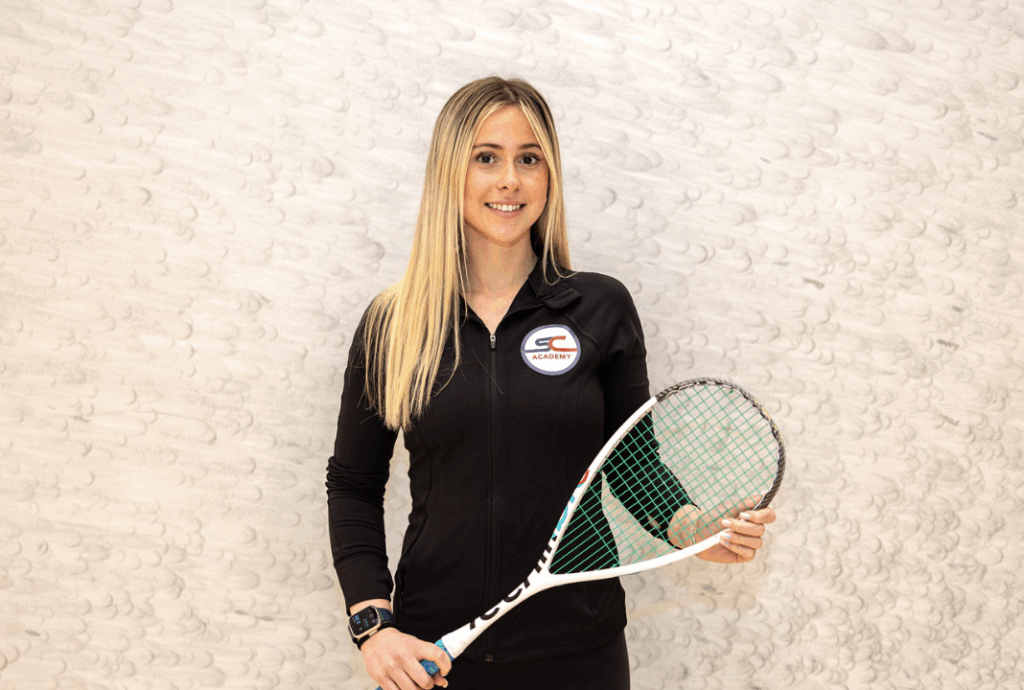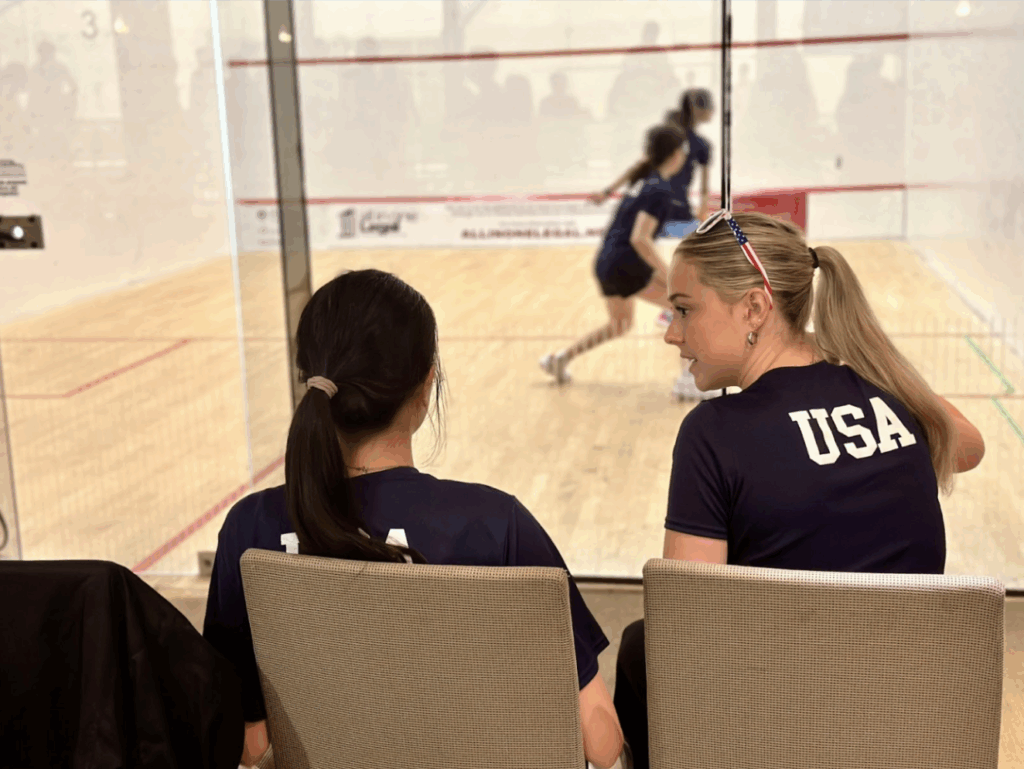
The Arlen Specter Center’s head coach Olivia Taylor shares her personal squash story and offers insights into the women’s game, in this exclusive Q&A by Linda Elriani.
You joined the Arlen Specter US Squash Center as the head coach a year ago. How do you feel about the last year and what do you have planned for the upcoming season?
I’ve thoroughly enjoyed my first year as Head Professional at the Arlen Specter US Squash Center. It’s been a rewarding experience working with such a passionate community and being part of a world-class facility. Looking ahead to next season, I’m excited to continue building on the momentum we’ve created—expanding our programming, supporting player development at all levels, and helping grow the game even further within the center and the broader squash community.”
How and at what age did you first become interested in squash?
Well, my parents introduced me to squash, at around the age of 4. They were always at the squash club so it was quite a natural introduction to the sport.
You have taken more of a coaching route in squash rather than playing. What is it about squash that made you love it and the move into coaching?
I love how niche the sport is, in school I was always different for playing squash – as no one knew of the sport. I played competitively until the age of 17 in Jersey CI, but it was always hard to get off island to compete in National events – that’s when I decided to get into coaching more. I have always loved working with kids.
What would you say is your coaching philosophy?
Well firstly, I like to instill a sense of self confidence and belief in my players, and nurture an environment where they feel empowered to achieve. I believe technique is key to a player’s development. I always introduce the technical principles to my players – grip, swing, body position. I also emphasize FUN with my players, as this keeps any young athlete engaged and motivated.

What are your coaching goals, especially now you are at the Specter Center?
My goal is to build the Specter Center junior program and introduce kids as young as 5 to our “spark program”. I am also very passionate about inspiring women in our sport and I’m hoping to grow the number of girls and female players and even coaches at the Specter Center.
You moved from the UK to Boston a few years ago. Do you feel squash is different in the US? And if so, how?
Yes, squash in the US is different in many ways… one being that the tournaments here are amazing. There are so many more tournaments at all levels, every weekend across the country. I think this is great and gives everyone an opportunity to compete. I hope to see more events including the new introduction of the Under 9s division.
We need more female coaches in squash, just like most sports. What would you say to female squash players out there to encourage them to take a coaching certification course and start coaching?
I think more programs should encourage their younger female players to get involved in coaching the juniors – this could ignite a passion for coaching which is a different aspect of the game. I think it gives you a responsibility, and you become a role model to them. That is something that definitely influenced my passion for coaching.
Who are your squash mentors and why?
Leading on from the previous question – the reason I got into coaching was because of my dad. From the age of 13, I would help him on the academy sessions coaching the 5-7 year olds. Ever since, he has inspired me to expand my coaching experience.
Do you have a favorite female PSA squash player and why?
My favorite player has to be Nour El Sherbini – she is an amazing player, and I think has the best technique on the women’s tour. She is a great role model, and shows all the traits of a world class athlete.
How do you feel about squash finally getting into the Olympics and what do you think this will do for squash and its growth?
It is an amazing opportunity for the sport and more so for the US as it’s in Los Angeles. I think we have to work together and get more people involved in the sport at all levels leading up to the games -juniors, more female involvement, and community based programs like Start squash and squash 57.
I am sure US squash is working hard on creating a legacy for post Olympics and for the sport to stay in the games with more exposure around the U.S.


